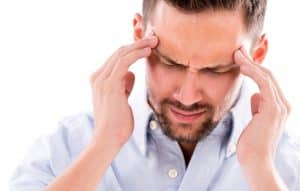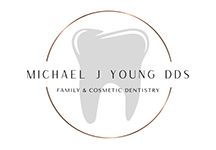 Body aches and pains can occur frequently enough that many people consider them a routine part of life; an annoying one, but one that simply must be tolerated. For instance, headaches can occur for almost limitless reasons. Therefore, rather than trace and treat a headache’s source, patients often prefer to grin and bear it, attacking the discomfort with over-the-counter painkillers and home remedies. These techniques may offer temporary relief, but if you chronically suffer from headaches, then chances are there is something wrong that must be addressed. In many cases, chronic, unexplained aches and pains stem from TMJ disorder—a chronic dysfunction in your jaw’s joints. As a jaw dysfunction, TMJ disorder can lead to headaches as well as a host of other symptoms, including recurring jaw pain and sore, stiff facial muscles.
Body aches and pains can occur frequently enough that many people consider them a routine part of life; an annoying one, but one that simply must be tolerated. For instance, headaches can occur for almost limitless reasons. Therefore, rather than trace and treat a headache’s source, patients often prefer to grin and bear it, attacking the discomfort with over-the-counter painkillers and home remedies. These techniques may offer temporary relief, but if you chronically suffer from headaches, then chances are there is something wrong that must be addressed. In many cases, chronic, unexplained aches and pains stem from TMJ disorder—a chronic dysfunction in your jaw’s joints. As a jaw dysfunction, TMJ disorder can lead to headaches as well as a host of other symptoms, including recurring jaw pain and sore, stiff facial muscles.
Understanding TMJ Disorder
Your temporomandibular joints, or TMJs, are the large joints that are situated just in front of each ear. They connect your lower jaw, or mandible, to the temporal bones in your skull, and along with the muscles that surround them, your TMJs allow your jaw to operate properly. Like the rest of your dental health, however, these joints are subject to damage and/or malfunction from various causes. If your bite is out of alignment (malocclusion); if you absorb a traumatic blow to the jaw or head; or if your jaw is placed under undue tension, the joints and muscles can wear down, spasm, become inflamed, or cease to work properly. The resulting discomfort can often be debilitating, and may spread throughout your jaw, head, neck, face, shoulders, teeth, and gums, as well as increase your risk of developing oral health issues.
How to Treat TMJ Headaches
Because headaches, neck soreness, back discomfort, and similar symptoms are common to many disorders, accurately diagnosing your condition may be difficult. If you’ve tried to treat your aches and pains at home, but to no avail, then speak with your dentist about the possibility of TMJ disorder. Treating the condition typically requires addressing the underlying problem to restore harmony and balance to your smile. Once your jaw is no longer forced to work harder than usual, your joints can heal and your mouth can operate comfortably and properly again.
Find Relief from Chronic TMJ Headaches
If your chronic headaches seem to have no cause, then speak with your dentist about the possibility of TMJ disorder being the reason. To learn more, schedule a consultation by calling Dr. Michael Young’s Lafayette, LA dentist’s office at 337-237-6453.
